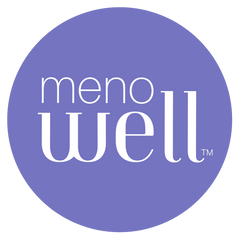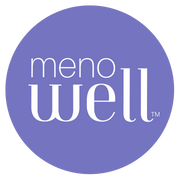Breast Cancer & Menopause: 5 Key Facts Every Woman Should Know

October is Breast Cancer Awareness Month—a time when pink ribbons show up everywhere as a reminder of how common and serious this disease is. While most women know breast cancer is one of the most common cancers in the world, fewer women realize that menopause and breast cancer often intersect in powerful ways. Whether you’re in perimenopause, menopause, or beyond, understanding this connection matters.
The truth is, midlife brings changes to our bodies that can influence risk, awareness, and even recovery. But knowledge is power—and when we take steps to understand what’s happening, we’re better equipped to make smart, supportive choices.
Below are five important facts every woman should know about the connection between breast cancer and menopause.
Fact 1: Breast Cancer Risk Increases with Age
One of the biggest risk factors for breast cancer is simply getting older. Most breast cancers are diagnosed after age 50, which is also when many women are in postmenopause. This doesn’t mean menopause causes breast cancer, but the timing overlaps.
Here’s why: menopause marks the end of a woman’s reproductive years, and by that point, the body has been exposed to hormones like estrogen and progesterone for decades. Estrogen in particular has been linked to the growth of certain breast cancers.
Takeaway: The older we get, the more mindful we need to be. That means regular screenings, self-checks, and awareness of changes in the breast tissue become more important than ever.
Fact 2: Hormone Shifts During Menopause Can Influence Risk
During perimenopause, hormone levels go up and down before eventually declining. Some types of breast cancers are hormone-sensitive, meaning they grow in response to estrogen or progesterone.
This is why doctors often consider family history, lifestyle, and other risk factors when deciding whether hormone therapy is the right choice for symptom relief. Not all women are at the same risk, so it’s important to personalize the approach.
Takeaway: Hormone changes don’t automatically mean higher risk, but they do make it even more important to talk with your doctor about what’s right for you.
Fact 3: Lifestyle Choices in Midlife Play a Bigger Role Than You Think
The years of perimenopause and menopause are often full of change. Our metabolism slows down, sleep may be disrupted, and energy levels can shift. These changes can lead to weight gain, higher blood sugar, or less physical activity—all of which can impact breast cancer risk.
But here’s the good news: lifestyle changes make a difference. Eating more whole foods, focusing on plant-based meals, staying active, and managing stress are all powerful ways to support both menopausal health and long-term breast health.
Something as simple as swapping out highly processed snacks for nutrient-dense options can help reduce sugar cravings and support more stable energy. When our bodies feel balanced, it’s easier to stick with healthier routines.
Takeaway: Daily choices matter. Midlife is the perfect time to create small but powerful habits that protect both your hormone health and breast health.
Fact 4: Breast Cancer Treatments Can Trigger Menopause-Like Symptoms
For women who go through breast cancer treatment, the journey often includes early or sudden menopause. Chemotherapy, radiation, and certain medications can stop periods abruptly, which can bring hot flashes, night sweats, and fatigue.
This can feel overwhelming—but knowing it’s a common effect helps women prepare. Just like in natural menopause, lifestyle strategies—such as nutrition, movement, and stress reduction—become essential tools for managing symptoms and supporting recovery.
Takeaway: Menopause and breast cancer sometimes overlap not because of age, but because treatments can push the body into menopause.
CHECK FOR DISCOUNTS AND PURCHASE ON AMAZON
Fact 5: Nutrition is a Game-Changer for Midlife Women
Food is one of the most powerful tools we have for health in midlife. Studies suggest that eating a diet rich in plants, fiber, and lean proteins can not only support healthy hormones but may also help the body feel more balanced during menopause.
Fiber is especially important. It helps us feel full, keeps digestion regular, and supports stable blood sugar. Stable blood sugar is key because it’s linked to cravings, energy swings, and weight gain—issues many women face during menopause.
That’s where MenoWell Fiber + Protein Bars come in. Made with ingredients like flaxseed, organic maca, probiotic fiber, and plant-based protein, these bars are designed with women’s midlife needs in mind. They’re doctor-approved, satisfying without being heavy, and a smart way to help manage cravings while supporting overall wellness. With just 150–160 calories, they make it easier to choose something nourishing when you need a quick snack.
Takeaway: What we eat really does matter. Choosing foods that support energy, balance, and satisfaction can help women feel stronger and more empowered in both menopause and beyond.
Putting It All Together
Breast cancer and menopause are deeply connected through age, hormones, lifestyle, and even treatment. But that doesn’t mean women are powerless. By learning the facts, making supportive choices, and prioritizing nutrition, every woman can take steps toward greater well-being in midlife.
This Breast Cancer Awareness Month, let’s honor women everywhere by continuing the conversation. Whether it’s scheduling your mammogram, walking more, or choosing better-for-you snacks like MenoWell Fiber + Protein Bars, every small choice adds up.
Knowledge is power—and midlife is the perfect time to take charge. 💜
Sources:
-
American Cancer Society
-
National Cancer Institute
- North American Menopause Society
-
World Health Organization





